Epistemology is, officially, ‘theory of knowledge’. But it is so much more besides: it is many theories, of many phenomena, still unfolding, still being tested and applied and revised and replaced. Epistemology is alive, and this series exemplifies that spirit, enticing into epistemology’s future, as much at the core of philosophy as it has long been.
In thinking epistemologically, we soon realise that there are many paths that might be followed when seeking knowledge, yet also many barriers – large and small, actual and possible – to be found along those paths, potentially hiding real knowledge from us. But suppose that we can know. Do different kinds of knowledge then await, sometimes reflecting diverse aspects of what it is to be human, even what it is to be a sentient being at all? And what of social reality, how we function as social beings? Does knowing take competing forms in different societies, in diverse social groupings?
Even if it does, can we discern something persisting throughout all of that diversity, something that all knowing shares, no matter how much knowers themselves might vary? That is the question of what knowledge even is in the first place. Is there a single thing that knowing is? Can we ‘burrow down’ into it, finding a repeatable nature to all knowing?
For example, does any instance of knowing have significant components, such as truth and belief and evidence? Does knowing admit of different strengths, perhaps depending on context, or on what is being known? Can we ever be mistaken in attributing knowledge to ourselves or to others? Is knowing easily available – or fiendishly difficult? Should we look gratefully to science, for instance, as our best model for how to know – cooperatively, via observation and testing? Or is knowing simpler than that, perhaps arising in us as individuals, as we navigate the natural world? Will we need a self-reflective and intellectual perspective on ourselves and the world if real knowledge is to be ours? What is the role of reasoning within knowing? The role of perceiving? The role of memory? The role of intellectual virtue? The role of testimony, of learning from other people? Such questions roll on, as epistemology continues to grow and thrive. The Elements of this series will engage insightfully and energetically with these, and kindred, elements of epistemology.
These Elements will also point us towards further fields in which epistemologists have started to tread. Knowledge and language; knowledge-how; self-knowledge; knowledge of morality; knowledge and injustice; knowledge and probability; knowledge and religion; knowledge and feminism; and so on. Epistemology’s range has been expanding excitingly in recent years – as these Elements will show.

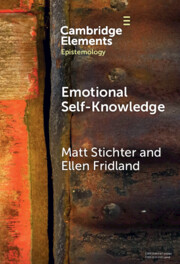
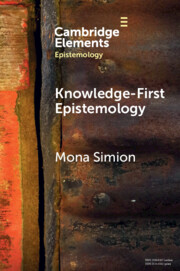
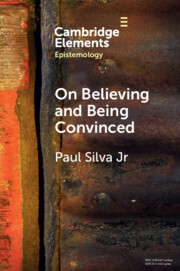
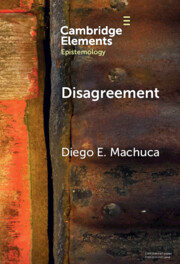
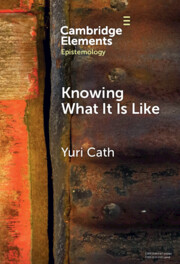
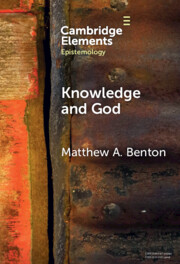
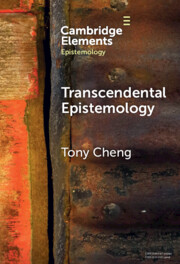
Stephen Hetherington is Professor Emeritus of Philosophy at the University of New South Wales, Sydney. From late 2013 until early 2022, he was the Editor-in-Chief of the Australasian Journal of Philosophy.
He is the author of Epistemology’s Paradox (Rowman & Littlefield, 1992), Good Knowledge, Bad Knowledge (OUP, 2001), How to Know (Wiley-Blackwell, 2011), Knowledge and the Gettier Problem (CUP, 2016) and Defining Knowledge (CUP 2022). He has written introductory books, too – Knowledge Puzzles (Westview, 1996), Reality? Knowledge? Philosophy! (Edinburgh UP), Self-Knowledge (Broadview, 2007), Yes, But How Do You Know? (Broadview, 2009), and What Is Epistemology? (Polity, 2019). He has edited several books: Epistemology Futures (OUP, 2006), Aspects of Knowing (Elsevier, 2006), Epistemology: The Key Thinkers (Continuum, 2012; second edition, Bloomsbury, 2019), Metaphysics and Epistemology (Wiley-Blackwell, 2014), What Makes a Philosopher Great? (Routledge, 2017), The Gettier Problem (CUP, 2019), (as general editor) The Philosophy of Knowledge: A History (Bloomsbury, 2019 – four volumes), Knowledge in Contemporary Epistemology (with Markos Valaris: Bloomsbury, 2019), and What the Ancients Offer to Contemporary Epistemology (with Nicholas D. Smith: Routledge, 2019).